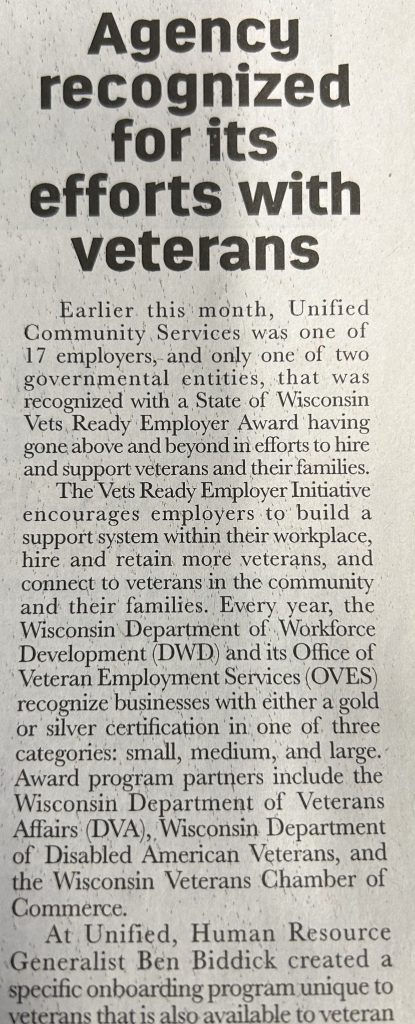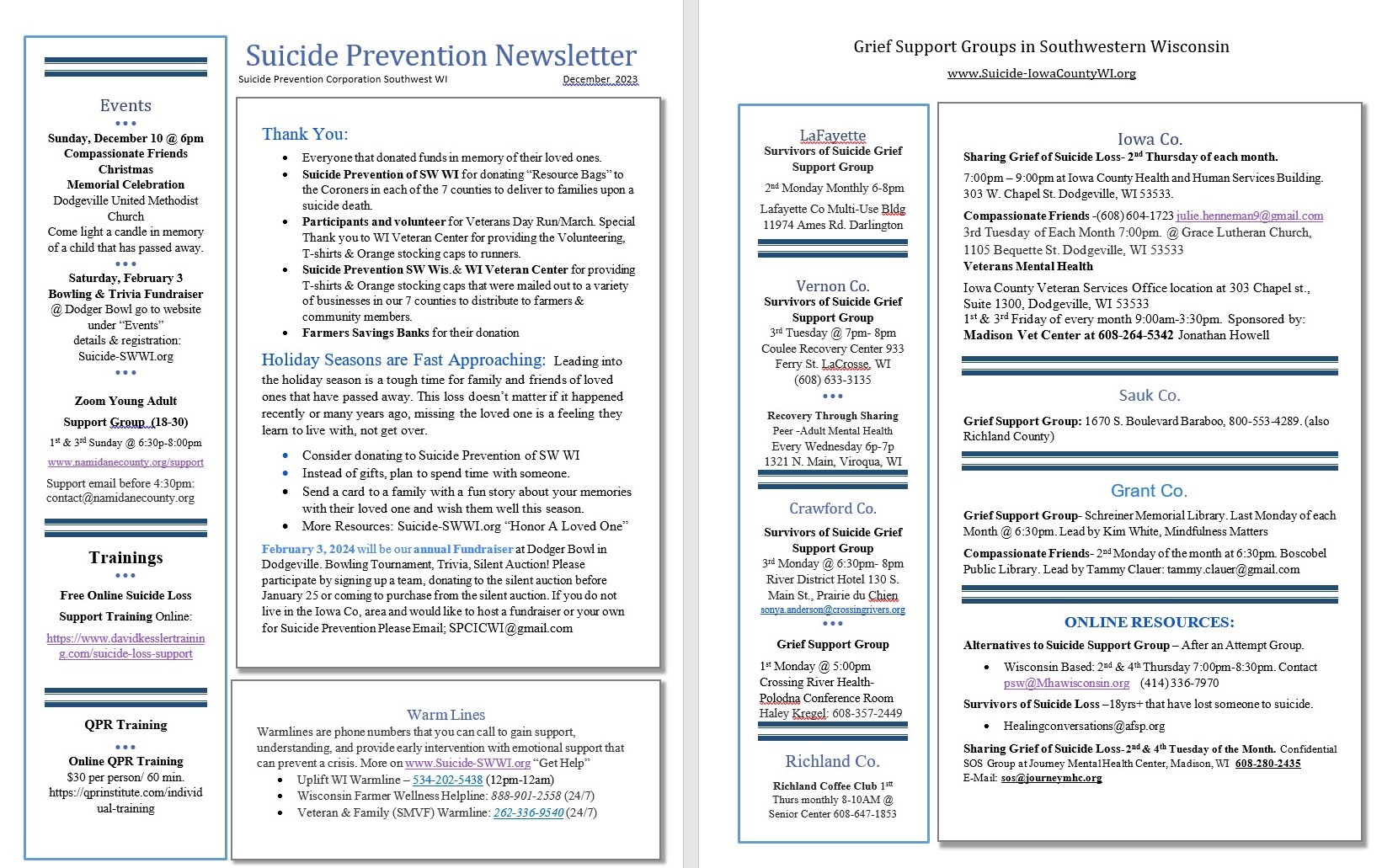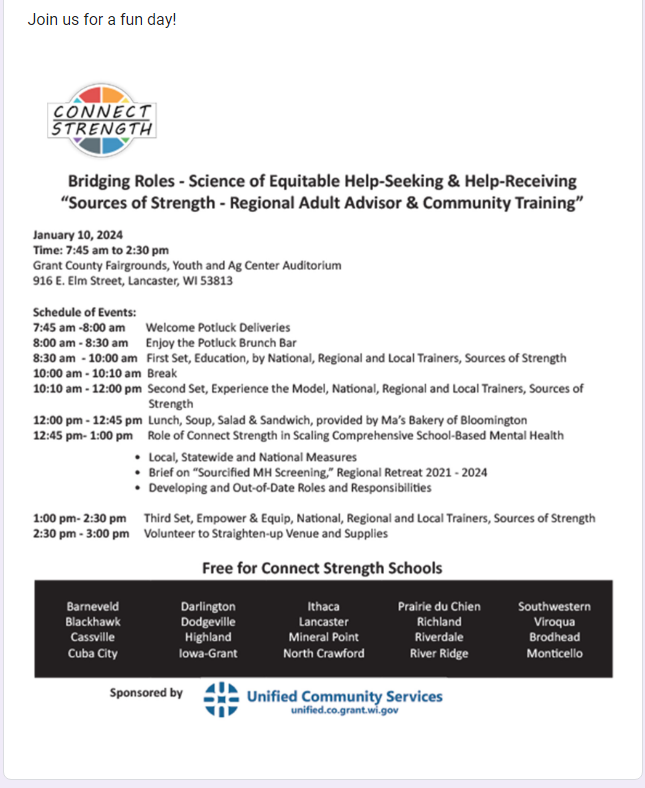
Learn more in this article by Keri Lipperini, Director, Office of Nutrition and Health Promotion Programs, Administration for Community Living.
“Winter is upon us. While some may enjoy the colder climates, others may start withdrawing from activities and disconnecting from family and friends. Those who suffer from seasonal depression will face an even harder battle as they withdraw until springtime returns. The decline of outdoor activities, followed by a lack of social interaction during the winter months, could easily lead you to feel isolated and lonely.
Research shows that social isolation and loneliness can have a detrimental impact on your health and well-being. In fact, studies by Julianne Holt-Lunstad at Brigham Young University found that prolonged social isolation is as harmful to health as smoking 15 cigarettes a day, and more harmful than obesity. Other studies have found that being socially isolated increases your risk of being targeted for abuse and neglect. Older adults who lack social connections or report frequent feelings of loneliness also tend to suffer higher rates of injuries, infection, depression, cognitive decline, and early death. That is a profound impact!
Social isolation is complex. Chronic disease, speech or hearing impairments, inadequate transportation options, and settings that are not accessible for people with physical and mental disabilities can each make social isolation worse. You may choose to stay home, where you feel comfortable, because you feel anxious or embarrassed about your health or disabilities. Depression, anxiety, early-stage dementia, and other mental health concerns, can also increase your risk of social isolation. Additionally, If you no longer drive and have limited, or no, access to public transportation, you are more likely to face social isolation. This is a particular concern in many rural communities.
In addition to social isolation being complex; it is not always easy to spot. Just because you live alone, or spend a lot of time alone, doesn’t mean you are socially isolated and you can be socially isolated even if you have an extroverted personality and appear socially engaged. Social isolation is not about being in a room full of people, or having a lot of “friends” on social media, it is about feeling connected.
Feeling connected means being understood. People often isolate themselves because they feel no one understands what they are going through.
So, how do you spot social isolation? You may want to start by thinking about how you have changed over time. For example, are you less excited about things you once enjoyed? Do you feel distant from people or misunderstood? If you are a caregiver, does your loved one seem less excited about events they once looked forward to, such as the annual car show or regular social functions? These changes could be red flags indicating social isolation.
Your risk of social isolation can increase as you get older for a variety of reasons, including bereavement and greater risk of disabilities that effect mobility or communication. Nearly one in five Americans age 65 and older are socially isolated.
However, social isolation can effect anyone at any time. As a veteran who experienced deployments and the transition from military to civilian life, I am no stranger to the effects of social isolation. Anyone, no matter their age, can withdraw or disconnect from family, friends, or the community.
You may be wondering, what can be done? Studies show that being active and engaged in your community are great ways to tackle social isolation.
One such study was an evaluation of ACL’s nutrition program, which provides meals to older adults. Ninety three percent of participants who receive meals in congregate settings, such as senior centers, were socially active and satisfied with their opportunities to spend time with other people. The typical congregate meal participant does not experience loneliness and only seven percent of congregate meal participants screened positively for depression.
Some other ways to engage in meaningful social activities include:
Volunteering or mentoring in your community
Visiting your local senior or community center
Seeking out leadership roles in a civic organization or faith community
Signing up for a cooking, exercise, falls prevention, chronic disease self-management, or other class
You can also learn about assistive technology solutions, such as hearing aids and wheelchair ramps, which can make it easier for you to stay active in your community. If you are a caregiver, encourage your loved ones to engage in meaningful social activities that increase opportunities for socialization. If your loved one is unable to get out of the house, a daily phone call or visitor can make a huge difference.
Ultimately, tackling social isolation is about making our communities more accessible, inclusive, and caring. If you think someone in your community is at risk of social isolation, you can start by reaching out. Try asking if they would like a visit or invite them to join you on an outing.
To learn more about programs and services in your community that can help you or a loved one get more engaged, go to eldercare.acl.gov or call 800-677-1116.”
Source: https://acl.gov/…/acl…/staying-socially-connected-winter











